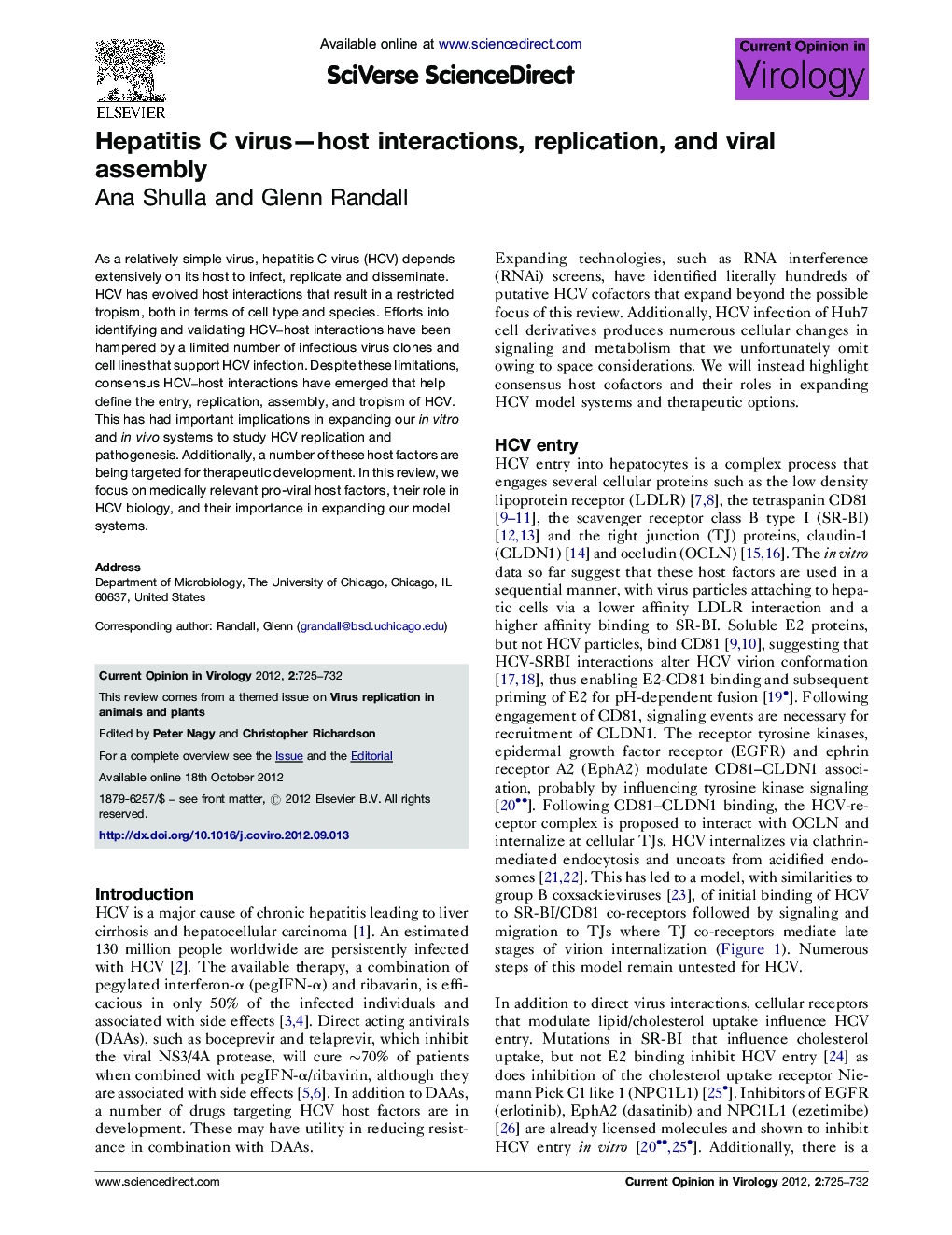| Article ID | Journal | Published Year | Pages | File Type |
|---|---|---|---|---|
| 2473503 | Current Opinion in Virology | 2012 | 8 Pages |
As a relatively simple virus, hepatitis C virus (HCV) depends extensively on its host to infect, replicate and disseminate. HCV has evolved host interactions that result in a restricted tropism, both in terms of cell type and species. Efforts into identifying and validating HCV–host interactions have been hampered by a limited number of infectious virus clones and cell lines that support HCV infection. Despite these limitations, consensus HCV–host interactions have emerged that help define the entry, replication, assembly, and tropism of HCV. This has had important implications in expanding our in vitro and in vivo systems to study HCV replication and pathogenesis. Additionally, a number of these host factors are being targeted for therapeutic development. In this review, we focus on medically relevant pro-viral host factors, their role in HCV biology, and their importance in expanding our model systems.
► Consensus HCV–host interactions have been identified at all stages of the viral life cycle. ► Many of these interactions are targets of drug development. ► These interactions define HCV tropism and are being used to expand our model systems.
